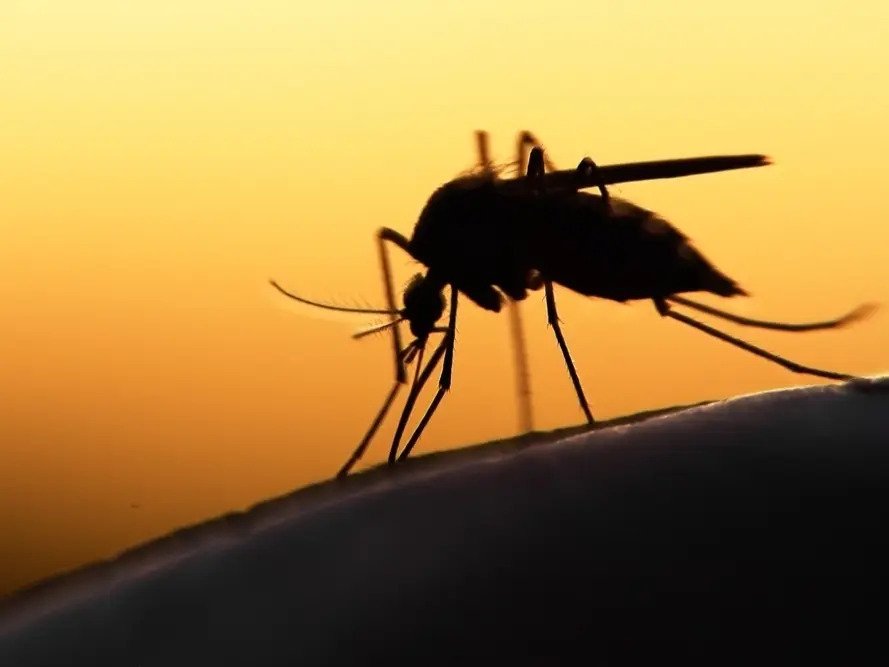
As many as 2 billion mosquitoes will be released in California to help combat mosquito-borne diseases such as yellow fever, dengue, and Zika.
A swarm of 2 billion genetically modified mosquitoes could soon buzz across California to help combat an invasive mosquito species known to spread diseases such as dengue, chikungunya, Zika and yellow fever.
The U.S. Environmental Protection Agency approved a pilot project in California and Florida to use non-biting, genetically edited male Aedes aegypti mosquitoes to help combat disease-transmitting mosquitoes of the same species.
Under the project, male mosquitoes, which don’t bite and carry genes that kill their daughters, are released and mate with female mosquitoes, which do bite. The gene is passed down to subsequent generations, meaning when the mosquitoes mate, only their non-biting sons survive.
Applications will be sent to state regulators next for final approval.
Invasive Mosquitoes Descend On California
Two invasive species of mosquitoes have been found in California, and both could spread to the rest of the state. Unlike most native species of mosquitoes, both of the invasive species bite during the day, according to the state Department of Public Health.
“Both species are small, black mosquitoes with white stripes on their back and on their legs. They can lay eggs in any small, artificial or natural container that holds water,” the public health department said on its website.
The disease-transmitting Aedes aegypti mosquitoes were first detected in California in 2013. They’ve rapidly spread to more than 20 counties throughout the state, the U.K.-based pest control Oxitec said in a media advisory announcing the release this week.
“Because Ae. aegypti mosquitoes live near and prefer to feed on people, they are more likely to spread these viruses than other types of mosquitoes,” the federal Centers for Disease Control and Prevention said on its website.
A California map updated last week showed Aedes aegypti mosquitoes were found in the following counties: Butte, Fresno, Imperial, Kern, Kings, Los Angeles, Madera, Merced, Orange, Placer, Riverside, Sacramento, San Bernardino, San Joaquin, Santa Barbara, Shasta, Stanislaus, Sutter, Tulare, Ventura and Yolo.
This includes dozens of major population centers such as Chico, Fresno, Los Angeles, Pasadena, Long Beach, Santa Clarita, Manhattan Beach, Huntington Beach, Rancho Santa Margarita, Anaheim, Corona, Lake Elsinore, Temecula, Chino, San Bernardino, Sacramento, Stockton, Santa Barbara, Redding, Modesto, Yuba City, San Diego, Oceanside, Visalia, Thousand Oaks, Ventura and Davis.
Under the California pilot project, planned in partnership with the Delta Mosquito and Vector Control District in Tulare County, an experimental use permit allows the company to release about 2.4 billion genetically altered mosquitoes between 2022 and 2024.
Billions Could Buzz Across Four California Counties
In California, the EPA approval allows for about 1 billion mosquitoes to be released through April 30, 2023, across 15,600 acres in Stanislaus, Fresno, Tulare and San Bernardino counties. Another billion could then be released over the following calendar year.
However, Meredith Fensom, head of global public affairs at Oxitec, told USA Today a more-limited launch is planned covering the Florida Keys and expanding to Visalia in Tulare County.
Dr. Mustapha Debboun, general manager of the Delta Mosquito and Vector Control District, told Courthouse News they see the technology as “an important additional option to control the invasive Aedes aegypti mosquito.”
“We look forward to working in partnership with Oxitec and have been impressed with results from their previous projects in Brazil and the Florida Keys,” Debboun said.
Grey Frandsen, CEO of Oxitec, said in a statement his team was “immensely proud” to have received approval to expand the pilot project.
“Given the growing health threat this mosquito poses across the U.S., we’re working to make this technology available and accessible,” Frandsen said. “These pilot programs, wherein we can demonstrate the technology’s effectiveness in different climate settings, will play an important role in doing so. We look forward to getting to work this year.”
Cutting-Edge Solution, Or ‘Unnecessary Or Dangerous’?
Not everyone is happy with the plan, with some calling it unnecessary or even dangerous.
For starters, California has no cases of dengue, yellow fever, chikungunya or Zika that were acquired locally, Jaydee Hanson, policy director with the Center for Food Safety, said in a statement.
“None of these viruses are currently known to be transmitted within California, but thousands of people are infected with these viruses in other parts of the world, including in Mexico, Central and South America, the Caribbean, and Asia,” the state Department of Health said.
The presence of Aedes aegypti and Aedes albopictus mosquitoes in California “poses a threat” that the viruses could be transmitted in infested areas from returned infected travelers, the agency added.
Hanson fears that releasing billions of genetically modified mosquitoes will likely lead to genetically modified females getting out, and creating hybrid mosquitoes that are “more virulent and aggressive.”
The environmental advocacy group Friends of the Earth, meanwhile, said there’s no publicly available data to support the firm’s claims that genetically modified mosquitoes will reduce cases of mosquito-borne diseases. The group pointed to a peer-reviewed study by Yale University scientists that showed even after two years of continuous releases of genetically altered mosquitoes in Brazil, the species of mosquito did not see its populations reduce. The study also found that the mosquitoes bred with each other, resulting in hybrid mosquitoes in the wild. These could be more aggressive, harder to eradicate and could actually increase the spread of mosquito-borne disease, the advocacy group said.
“Scientists have found genetic material from GE mosquitoes in wild populations at significant levels, which means GE mosquitoes are not sterile. GE mosquitoes could result in far more health and environmental problems than they would solve,” Dana Perls, food and technology program manager at Friends of the Earth and a California resident, said in a statement. “EPA needs to do a real review of potential risks and stop ignoring widespread opposition in the communities where releases will happen.”


